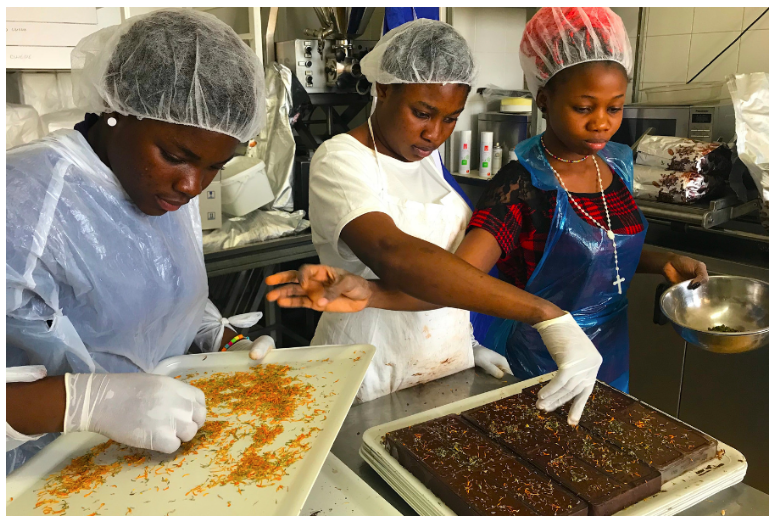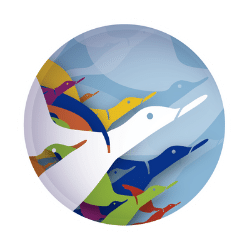Sustainable food project gives vulnerable migrant women a new start

Helping vulnerable migrant Nigerian women in Sicily to find long-term employment in the food sector is just one of the ground-breaking ideas from Gaia Education’s Design for Sustainability (DfS) Programme.
Gaia Education, an international organization based in Scotland, United Kingdom and with 14 years of experience in Education for Sustainable Development (ESD), is active in 54 countries and six continents. Its DfS programme uses online and face-to-face programmes and project-based learning programmes to equip students of all ages and cultures with knowledge, skills and critical thinking tools to design a society which uses energy and resources with greater efficiency, distributes wealth equitably, and works towards a better quality of life.
Gaia Education is a key partner of UNESCO’s Global Action Programme on ESD (GAP) and was nominated for the 2018 UNESCO-Japan Prize on ESD. UNESCO promotes ESD through the GAP which aims to generate and scale up action in order to speed up progress toward sustainable development.
Gaia Education’s Design for Sustainability programme, which has more than 19,000 graduates and 111 partner organizations, uses a methodology based on four dimensions of sustainability: social, ecological, economic and worldview. Its trainings use expertise from the world’s most successful eco communities to bring about personal transformation. Participants return to their communities with viable designs and practical skills to lead the transition to sustainable lifestyles.
‘We have three different publics – changemakers, glocalisers and the empowered – each one at a different stage of engagement,’ said CEO May East. ‘The glocalisers, like me, have been awakened for a long time to what is happening locally but are also in step with global trends.
‘This calls for the very latest teaching materials and methods as we move very fast from sustainable to regenerative development. We argue how one can enable the places where we live and work to thrive, going well beyond merely sustaining a precarious balance.
‘Changemakers come from the “global north” and the high consuming sector of society and have reached a stage where they realize the lifestyles they have been sustaining have to be redesigned. The empowered come from the “global south” and we help them move from creating an aid project to building a livelihood project, placing products in ethical markets and bringing companies to awareness of those products,’ said May.
The programme is continually evaluated and 92 per cent of its courses have been rated ‘good’ or ‘excellent’. External evaluators are used to measure the project-based learning.
‘Our success is due to the fact that there is a deep alignment between what we teach and who we are. We are not teaching something that is a mirage in the desert but gathering solid information on all the major trends of redesigning the human presence on planet through ESD,’ said May. ‘We measure the state of preparedness for change of every participant and provide the meaningful learning environment for the next stage whether it is a big or a little step.’
The DfS programme was launched in 2005 just as the United Nations Decade of ESD was launched and has grown with the movement.
‘We know we are successful when we have created the learning environment for our students to move themselves to a higher order of sustainable living and working’ said May.
One topical project, Courage Chocolate, currently being conducted on the island of Sicily, Italy works with young female migrants, many from Nigeria who are searching for a new life but who are highly vulnerable to trafficking.
‘The programme is working to build the capacity of these young girls some of whom have suffered huge trauma and some of whom have small children to support in Iblei, a region which has the highest biodiversity of herbs in Sicily,’ said May.
‘We co-develop an ESD pathway with them starting with a social design aspect teaching decision-making, communication, and followed by ecological design. At this stage we go into the field and learn about medicinal and aromatic herbs from which they make cosmetics, or food including chocolate,’ said May.
Under the label Courage Chocolate, the project recently created six types of herbal flavoured chocolate which have been awarded by TuttoFood in mainland Milan for its ‘inclusive responsibility’.
‘In all our work we keep in mind that transition and change are coming whether we like it or not. We can either design that change or be victims of it,’ said May.

